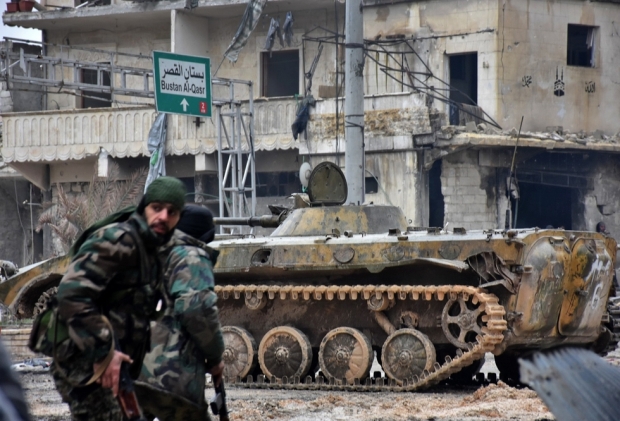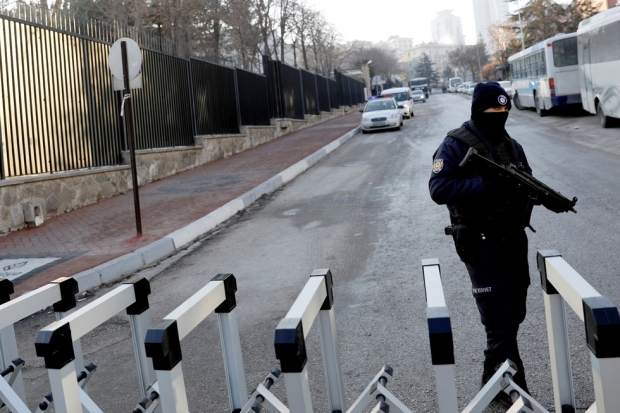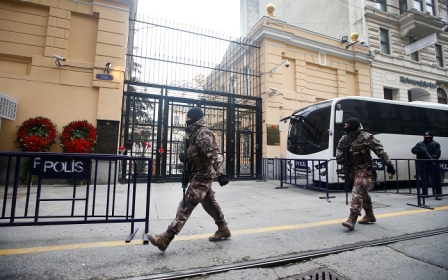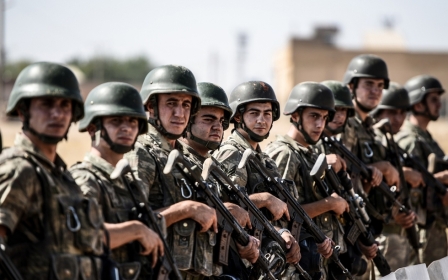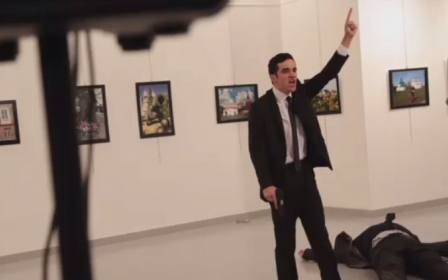Turkey, Russia and Iran: Leave Syria peace deal to us
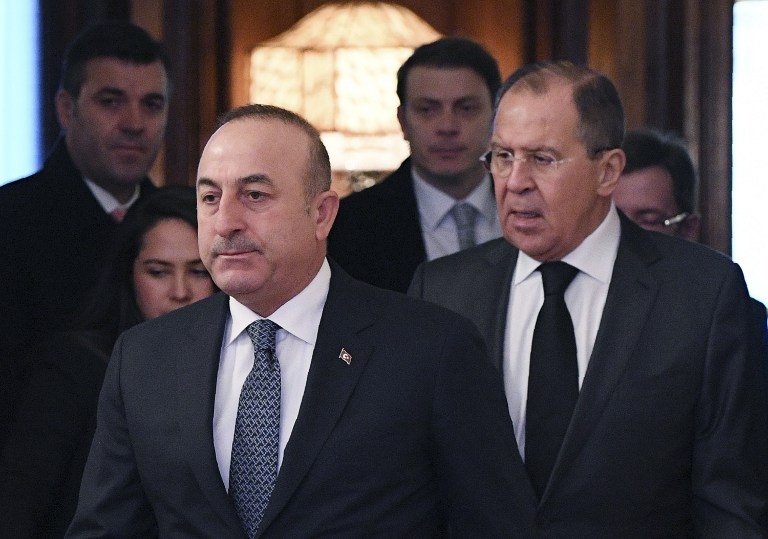
Russia, Iran and Turkey are ready to help get a deal done between the Syrian government and opposition, Russian foreign minister Sergey Lavrov said on Tuesday after meeting his Iranian and Turkish counterparts in Moscow.
The three countries have backed a declaration to revive the Syria peace talks while supporting the principle of Syria's territorial integrity, Lavrov told a news conference.
READ: Why I deserted the Syrian army
Lavrov also said hat the evacuation of Aleppo would be complete in a maximum of two days.
He told a news conference that Russia, Iran and Turkey had used their influence to make the evacuation happen, adding that the International Syria Support Group - a group of world powers including Russia, the US and Saudi Arabia which has worked to solve the crisis - had not been able to enforce its decisions.
But Turkey and Russia have started working closely together to evacuate rebel fighters and civilians from war-battered Aleppo under a complex deal.
Moscow: US has failed
Earlier on Tuesday, Russian defence minister Sergey Shoigu said that Russian experts had drawn up a "Moscow Declaration" that amounted to a roadmap for ending the Syria crisis and that he hoped that Turkey and Iran could support the document.
The United States has been left out of the talks in a clear sign that Moscow is attempting to forge its own settlement for Syria after failing to make headway with Washington.
'All previous attempts by the United States and its partners to agree on coordinated actions were doomed to failure'
- Russian defence minister Sergei Shoigu
Shoigu, speaking at meetings in Moscow with his Iranian and Turkish counterparts, said the document was aimed at achieving a ceasefire in Syria.
"All previous attempts by the United States and its partners to agree on coordinated actions were doomed to failure. None of them wielded real influence over the situation on the ground," said Shoigu.
"The approval of the declaration at the level of defence and foreign ministers implies our readiness to guarantee and jointly address concrete questions related to resolve (the crisis in) Syria."
Assassination won't harm cooperation on Syria
Meanwhile, Turkish President Recep Tayyip Erdogan said Tuesday he had agreed with Russian counterpart Vladimir Putin that the assassination of Moscow's ambassador to Ankara on Monday will not harm cooperation between the two countries, including on Syria.
Russian envoy Andrei Karlov was gunned down at an exhibition opening by a Turkish policeman crying "Allahu Akbar" ("God is greatest") and "Don't forget Aleppo", in what Moscow called a "terrorist act".
"We share the same understanding with Mr Putin that our expanding areas of cooperation with Russia, particularly on Syria, will not be hampered by this attack," Erdogan said in Istanbul after speaking by phone late Monday with Russian President Vladimir Putin.
Putin on Monday warned that the killing of Karlov was a "provocation" aimed at damaging ties with Turkey and undermining the latest efforts to reach a settlement on Syria.
'We share the same understanding with Mr Putin that our expanding areas of cooperation with Russia, particularly on Syria, will not be hampered by this attack'
- Recep Tayyip Erdogan, Turkish President
Meanwhile, Russian foreign minister Sergey Lavrov said on Tuesday there should be no "concessions to terrorists" at talks with his Turkish counterpart on Syria.
"This tragedy forces all of us to fight more decisively against terrorism," Lavrov told Turkey's Mevlut Cavusoglu as they sat down together in Moscow. "For this reason, I very much hope that our talks and the upcoming three-way meeting with our Iranian colleague will allow us to reach agreements, which will through concrete actions advance the settlement in Syria," Lavrov said, also insisting that they should not allow "any concessions to terrorists".
At the same time, Lavrov said at the start of talks with Iranian foreign minister Mohammad Javad Zarif that "if the organisers of this terror attack were aiming to derail the fight against terrorists in general and today's meeting in particular, they have not succeeded and they won't succeed"
Middle East Eye propose une couverture et une analyse indépendantes et incomparables du Moyen-Orient, de l’Afrique du Nord et d’autres régions du monde. Pour en savoir plus sur la reprise de ce contenu et les frais qui s’appliquent, veuillez remplir ce formulaire [en anglais]. Pour en savoir plus sur MEE, cliquez ici [en anglais].


